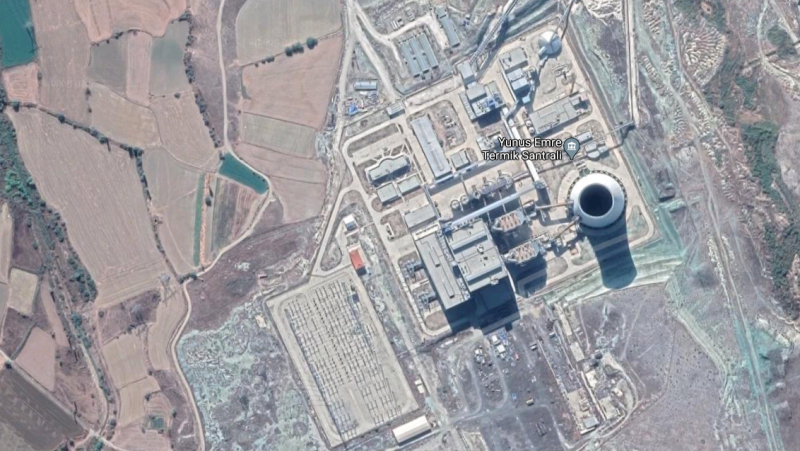Project – On record
This profile is no longer actively maintained, with the information now possibly out of dateCAN Europe
climate@banktrack.org

Project – On record
This profile is no longer actively maintained, with the information now possibly out of dateCAN Europe
climate@banktrack.org
Why this profile?
The Yunus Emre coal power plant, when in operation, would be responsible for adding millions of tonnes of CO2 into the earth's atmosphere thereby contributing to climate change and would severely impact the environment in Turkey. The project is an example of a high level of non-transparency of Czech export credit agencies leading to suspicion of corruption.
What must happen
The Paris Climate Agreement goals require a managed decline of fossil fuel production. The construction of new coal-fired power plants is not compatible with this goal. Banks must immediately stop financing new coal-fired power plant developments anywhere in the world. As such, banks should steer clear of financing the Yunus Emre coal power project.
Both the Czech and the Turkish government should immediately begin dismantling the coal power plant.
| Sectors | Coal Electric Power Generation |
| Location |
|
| Status |
Planning
Design
Agreement
Construction
Operation
Closure
Decommission
|
| Website | http://www.adularya.com/en/power-plant/2 |
The Yunus Emre coal power plant was developed by Adularya Energy (a subsidiary of Naksan Holding) and cost EUR 700 million. The plant has a capacity of 290 megawatts (MW) and is located in Turkey in the province of Eskisehir in the village of Koyunagili.
In 2018 the Turkish Savings Deposit and Insurance Fund (TMSF) took over Naksan Holding. In May 2019, TMSF announced that it would put the plant up for sale for TRY 1.1 billion. In August 2019, it was reported that the auction had been unsuccessful and no buyer for the plant had been found. The Turkey's Energy Market Regulatory Authority (EMRA) states that Unit 1 is operating and that Unit 2 is under construction. According to CAN Europe, construction was finished in June 2016, but currently the coal power plant is not in operation.
Social and human rights impacts
The plant will have negative effects on the air quality in the province of Eskişehir where the plant is located. While the intensity of particulate matter (PM) in many cities in Turkey is higher than WHO limits, according to the Black Report by the Turkish Right to Clean Air Platform data for air quality is not available for the Eskişehir region for the last three years. Air quality data for the town where the coal plant project is located (Mihalıçcık) is also not available. The nearest air quality monitoring station is in Ankara, 70 kilometers away from the plant site.
Environmental and climate impacts
Coal-fired power plants burn tons of coal each year and generate ash waste and air pollution. The air pollution is carried over distances of up to 1,000 kilometres. The province of Eskişehir is surrounded by many other coal plants which make the cumulative impact worse. Within 100 kilometres of Eskişehir, there is already coal capacity of 4,000 MW either in operation or in the pipeline; four coal plants in operation with 1,855 MW capacity (Tunçbilek CPP, Kütahya), Seyitömer CPP (Kütahya), Göynük CPP (Bolu), Çayırhan-A CPP, Ankara), coal plant projects which are in the pipeline with 1,080 MW capacity (Alpu CPP, Eskişehir) and one coal plant (Adularya Yunus Emre CPP, Eskişehir) which is under construction and partially ready to operate. As such, the risk of cumulative air pollution and health impacts is critical.
Other impacts
Project Adularya is an example of combination of on one hand a high level of non-transparency of Czech export credit agencies leading to suspicion of corruption, and on the other with investment into coal power plant devastating the environment in Turkey. The Czech Republic (ECAS: Czech Export Bank and Export Guarantee and Insurance Company EGAP) provided both, loan and guarantee in the amount of EUR 433 million for the construction of coal power plant to the company with limited experience with such a size of the project. Due to the non-completion of the project, the Czech Republic lost tax payers money and it should serve as the bad example of combination of corruption with climate destruction.
The EUR 700 million project has received debt finance of EUR 433 million from the Czech Export Bank.
The Savings Deposit and Insurance Fund (TMSF) of Turkey took over Naksan Holding, which means that the fund now owns Naksan and its subsidiary Adularya.
